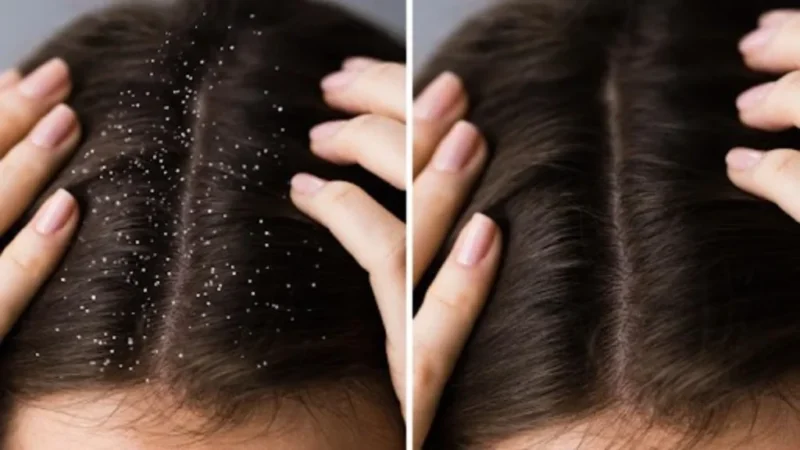Dandruff is one of the most common scalp concerns affecting people of all ages. While it’s usually harmless, it can be frustrating—causing itchiness, flakes, and sometimes embarrassment. Understanding what triggers dandruff and how to treat it effectively can help you keep your scalp healthy and flake-free.
What Causes Dandruff?
Dandruff forms when the scalp’s natural renewal cycle becomes disrupted. Several factors can contribute:
1. Overgrowth of Malassezia Yeast
A naturally occurring fungus can multiply excessively, leading to scalp irritation and flaking.
2. Dry Scalp
Lack of moisture causes small, white, dry flakes and tightness or itching.
3. Oily Scalp / Seborrheic Dermatitis
Overactive oil glands lead to greasy, yellowish flakes and redness.
4. Sensitivity to Hair Products (Contact Dermatitis)
Ingredients like fragrances, alcohols, and preservatives can trigger irritation.
5. Poor Scalp Hygiene
Infrequent washing allows oils and dead skin cells to accumulate.
Effective Scalp Treatments for Dandruff
1. Medicated Anti-Dandruff Shampoos
Look for active ingredients such as:
Zinc pyrithione – reduces fungus and bacteria.
Ketoconazole – powerful antifungal for moderate to severe dandruff.
Selenium sulfide – slows cell turnover and reduces yeast.
Salicylic acid – exfoliates dead skin cells and helps remove flakes.
Coal tar – reduces inflammation and slows skin cell overproduction.
How to use:
Apply the shampoo to your scalp, leave it on for 3–5 minutes, then rinse. Use 2–3 times weekly until symptoms improve.
2. Natural & Home Remedies
These options help soothe the scalp and reduce flaking:
Tea tree oil – antimicrobial properties (use diluted).
Aloe vera gel – calms itching and inflammation.
Coconut oil – moisturizes dry scalp and contains mild antifungal properties.
Apple cider vinegar rinse – helps balance scalp pH and reduce yeast growth.
3. Scalp Exfoliation
Using a gentle scrub or exfoliating brush removes buildup, allowing treatments to work better. Avoid harsh scrubs if you have sensitive skin.
4. Hydration and Moisturizing Treatments
For dry dandruff, look for:
Hyaluronic acid serums for scalp
Lightweight, non-comedogenic oils (argan, jojoba)
Deep-conditioning masks
5. Lifestyle Adjustments
Simple changes can help control dandruff long-term:
Wash your hair regularly with a mild or medicated shampoo.
Manage stress—it can worsen flare-ups.
Avoid heavy styling products that clog follicles.
Maintain a balanced diet rich in zinc, omega-3s, and vitamins B & E.
When to See a Dermatologist

Seek professional help if:
Over-the-counter treatments don’t improve symptoms after 4–6 weeks.
Your scalp becomes painful, swollen, or extremely itchy.
You have severe redness, thick scales, or oozing patches (possible psoriasis or severe dermatitis).
Final Thoughts
Dandruff is manageable with the right approach. Whether through medicated shampoos, natural remedies, or improved scalp care habits, consistent treatment can significantly reduce flakes and discomfort. Identify your dandruff type, choose appropriate solutions, and maintain a routine that keeps your scalp healthy and balanced.


